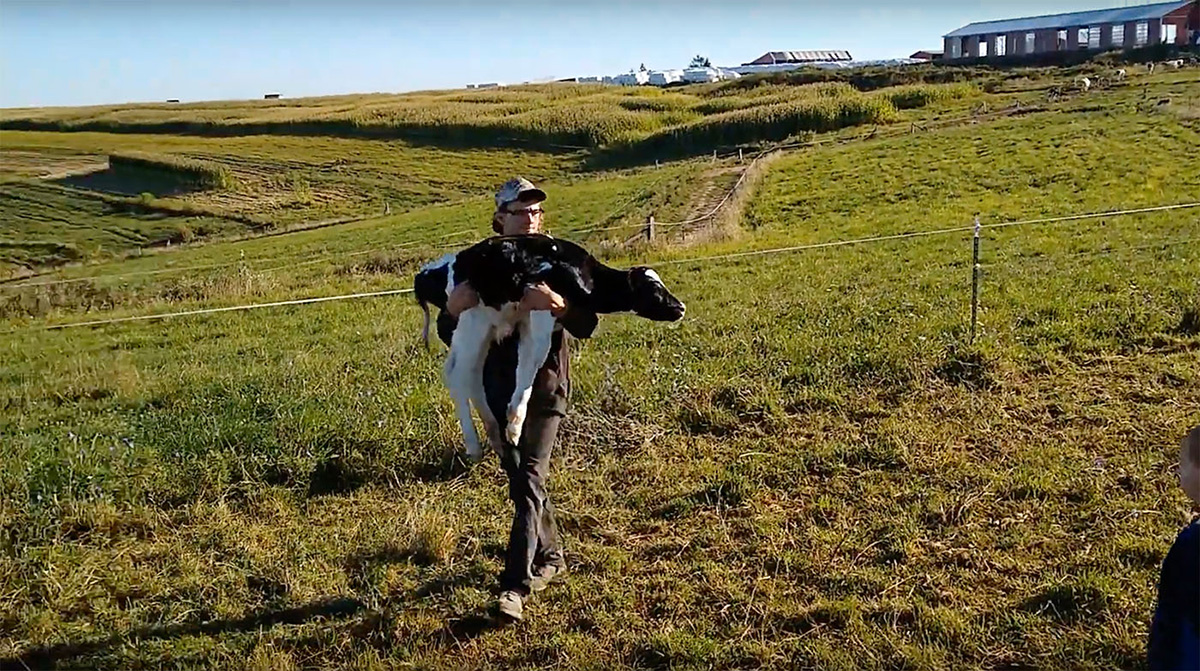Wisconsin is the second largest dairy producer in the United States, after California. Famous for their cheese festivals, many have found it surprising that raw milk sales are not legal in Wisconsin.
Raw milk herdshares and private food clubs exist, but have been targeted, prosecuted, and ordered to stop distributing raw milk by Wisconsin state officials.
Within the dairyland culture, big milk processors grow strong with their milk market and saturate the state government with recommendations against raw milk that become policy.
The Wisconsin Legislature agreed on a bill to raw milk legal in 2010, only for it to be vetoed by then-Governor Jim Doyle.
Governor Jim Doyle today vetoed Senate Bill 434 in its entirety, in order to protect the health of Wisconsin citizens and the state’s dairy industry. Governor Doyle issued the following statement regarding his action on the raw milk bill:
I recognize that there are strong feelings on both sides of this matter, but on balance, I must side with the interests of public health and the safety of the dairy industry.
May 19, 2010 – WisBusiness
This took place after the conventional dairy industry launched a full court press against the bill claiming it was dangerous.
In a press conference this morning, state dairy leaders spoke out against the measure, fearing sales of raw milk will cause illness and death, and tarnish the image of the state’s dairy industry. Letters of opposition came from farmers, dairy processors and public health officials.
Gov. Doyle had signaled he would sign the legislation this week, but reportedly has had second thoughts when the state’s dairy industry rose up in opposition.
May 14, 2010 – Dairy Herd Management
This was 13 years ago. Not a lot has changed since then, except for the overflowing demand for raw dairy products growing and stabilizing in states that have permitted access to raw milk.
In 2023, a new hope is rising – within a formerly hostile member of the coalition against raw milk.
Wisconsin Farm Bureau
In December, 230 delegates of the Wisconsin Farm Bureau met at their Federation’s 103rd Annual Meeting to established new policy directives for the organization.
Wisconsin Farm Bureau Delegates agreed to support dairy farmers gaining direct access to their customers so long as their farm meets Grade A requirements.
On the floor, delegates discussed various dairy topics. They voted to oppose de-pooling of milk by processors. During dairy policy discussion, delegates supported giving farmers more access to consumers through the sale of raw milk only if the farm meets Grade A requirements and national standards.
December 5, 2022 – Wisconsin Farm Bureau
Through this requirement structure, many dairy farmers would qualify and be able to sell their milk direct to consumers.
Direct to consumer sales are, by far, one of the most important aspects of raw milk. Pasteurized milk cannot be sold raw, and most farmers cannot pasteurize on-the-farm, so these farmers can only sell to food processing companies. Since this arrangement stilts heavily toward the milk pasteurizers, prices are dictated, often painfully to the farmer who can only sell to them.
With raw milk, farmers can sell directly to the consumer without the food processing middlemen.
Beyond the basic Grade A, there were also mentions of the Raw Milk Institute‘s food safety standards.
Travis Klinkner of Wisconsin
Vernon County farmer Travis Klinkner spoke with the Wisconsin Farm Bureau to educate the bureau on recent advancements in raw milk safety, encouraging them to loosen up on restrictions and allow farmers to sell direct to the consumer.
Travis Klinkner milks cows near Romance, in western Vernon County. He tells Brownfield post-pandemic, more consumers want farm direct marketing, and he lobbied Wisconsin Farm Bureau delegates to support the change. “Our policy I think gives our government relations team a good step forward to help our legislators establish some good laws for the sale of raw milk in Wisconsin. Consumers can purchase what they want to buy and farmers can sell what consumers want directly.”
Existing law is in place to prevent people from getting sick from unpasteurized milk, but Klinkner says technology and standards are available to make it safe. He says we’re not farming in the 1920s and 30s anymore. “The standards that I’m proposing are in a lot of ways in excess of pasteurized milk with lower bacterial and coliform counts, so we can ensure a stable shelf life to consumers who may be unaware of how to consume or handle raw milk.”
Klinkner says at least 26 other states already allow raw milk sales, but the safety standards vary. “We don’t just want anyone cracking a valve on their bulk tank and putting milk in a dirty jar. There’s going to be some standards with this that we propose today from the Raw Milk Institute as an example of some standards that will provide assurances that the consumer is going to be getting a clean, quality product.”
December 21, 2022 – Brownfield
Currently there are farmers selling raw milk clandestinely, and they should be allowed to do so above-board. With this change in attitudes, towards allowing farmers to prosper independently, there is hope that we will see positive legislation for raw dairy in Wisconsin soon.
Opposition
Wisconsin NPR hosted a podcast on January 13 featuring anti- raw milk voices John Lucey and Rob Ralyea.
WPR: What to know about the safety risks of consuming raw, unpasteurized milk
Links
2022 Attorney General’s WFBF Issue Survey
Wisconsin farmer pushes for change in state’s raw milk law
Wisconsin Farm Bureau Delegates Set Policy for 2023
Klinkners Win Farm Bureau’s Achievement Award
Klinkner Dairy Youtube Channel
Subscribe to emails from Get Raw Milk.
